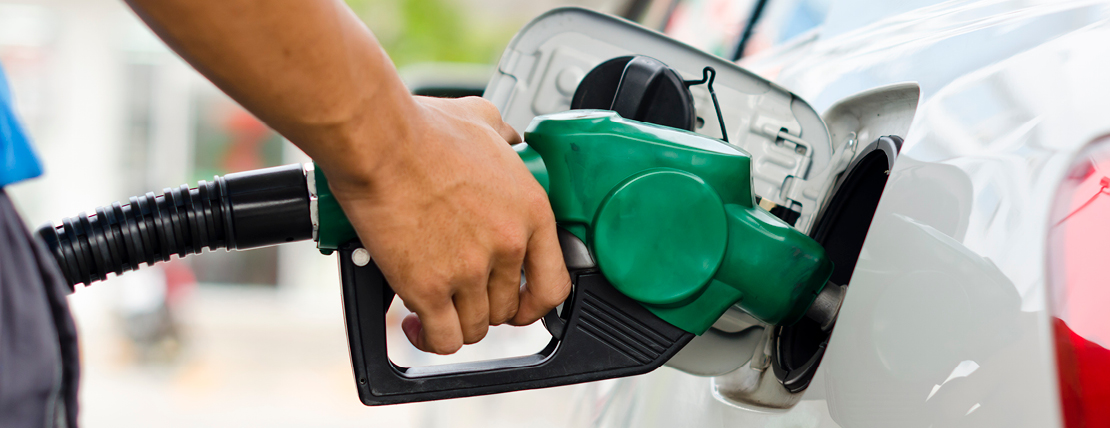- Pump the brakes on return-to-office plans. In response to rising gas prices, some organizations are opting to keep their employees remote.
- Offsetting costs with fuel benefits. Greg Perkins, owner and president of New Braunfels, Texas-based Oakridge Bellows, a manufacturer of expansion joints for pipes, began giving his workers $50 gas cards when prices hit $4 a gallon.
- Vehicle-related benefits have been in decline. A recent WorldatWork Pulse Poll found 74% of organizations currently offer vehicle-related benefits, which is down from 89% in 2015.
Just as many organizations were beginning to loosen COVID-19 restrictions and have remote workers return to the office, the cost of their commute was accelerated by record gasoline prices, leaving many leaders to look for a Plan B.
Some have been telling employees to keep their car in the garage and continue working remotely. Ravin Jesuthasan, a workplace expert with consulting firm Mercer, said some of his corporate clients have pulled back on returning workers to the office — at least until the fuel surge subsides.
“We are seeing many organizations start to take a step back in light of a very dramatic and rampant spike in gas prices,” Jesuthasan told CBS MoneyWatch. “They’re saying, ‘Actually, let’s wait and see how this plays out. Let’s wait for gas prices to start to subside and let’s not rush back to the office at this point.’”
Gallup reports that currently 39% of U.S. employees are exclusively remote and 42% work in a hybrid capacity. They anticipate 24% will remain exclusively remote in 2022 and beyond, while the percentage of hybrid workers will increase to 53% in 2022 and beyond.
But many jobs don’t have the option of remote work. And some companies are helping defray the cost of their commute with gas cards.
Greg Perkins, owner and president of New Braunfels, Texas-based Oakridge Bellows, a manufacturer of expansion joints for pipes, began giving his workers $50 gas cards when prices hit $4 a gallon.
“Most people — they can't absorb unexpected costs like that," he told NPR. His two dozen employees typically drive 20 to 40 minutes to get to work.
“This really doesn't hit your bottom line like you think it would,” Perkins said, pointing out the morale boost it brings. “You got to take care of your employees in order to get them to care about taking care of customers.”
The decision to issue more gas cards depends on the market, Perkins said.
"World events will hopefully resolve themselves," he said. "[Gas] may stay high, but hopefully not as high as it currently is."
One top executive’s dubious response to record gas prices can be called Plan F, as in fired. Wayne Pankratz, executive director of operations for franchising company that owns dozens of Applebee’s and Taco Bell restaurants, thought higher gas prices could lead to lower wages.
He outlined his logic in an internal memo, stating instead of asking for higher pay, low-wage workers would be seeking more hours to help pay for higher bills, such as the price of a tank of gas. Pankratz foresaw a seller’s labor market turning into a buyer’s, with desperate workers willing to work longer hours for lower wages.
The email was leaked, and Pankratz first found himself widely ridiculed and then jobless.
In that environment, WorldatWork fielded the 2022 Vehicle-Related Benefits Pulse Poll. The survey found that 74% of the 189 employers that responded offer vehicle-related benefits. Interestingly, that number from the 2022 poll is virtually the same percentage as the 75% reported in a separate WorldatWork survey from 2008, when there were also record-high gas prices and fluctuating markets.
However, there is a 15-percentage point drop in organizations offering vehicle-related benefits from 2011 and 2015, when gas was much cheaper.
CNBC reported that at the start of 2022, 64% of Americans were living paycheck to paycheck, so costly transportation to work might already be a challenge for many employees, noted Alicia Scott-Wears, compensation and rewards content director for WorldatWork.
“Having gas prices sky high can exacerbate an already difficult situation,” Scott-Wears said. “Implementing creative transportation relief can be good for your employees, the business and the environment and they don’t need to be high cost or complex to administer.”
Scott-Wears offered up several potential employer solutions:
- Organize a carpool sign-up and perhaps a small perk for those that participate.
- Ensure scheduling doesn’t split shifts unnecessarily so that employees are only making one trip to and from the work location.
- Start a limited-time program where you randomly select a recipient for a gas gift card associated with perfect time/attendance each payroll.
Those offering vehicle-related benefits today have remained relatively stable over the past 12 months for most categories, with the exception of fuel or mileage reimbursement, where 14% are reporting being more generous to employees.
Compared to the 2015 survey, executives and outside sales employees are seeing reduced benefit eligibility in parking allowance/reimbursement and vehicle allowance while any employee with a bona fide business need is being granted more access to fuel or mileage reimbursement.







